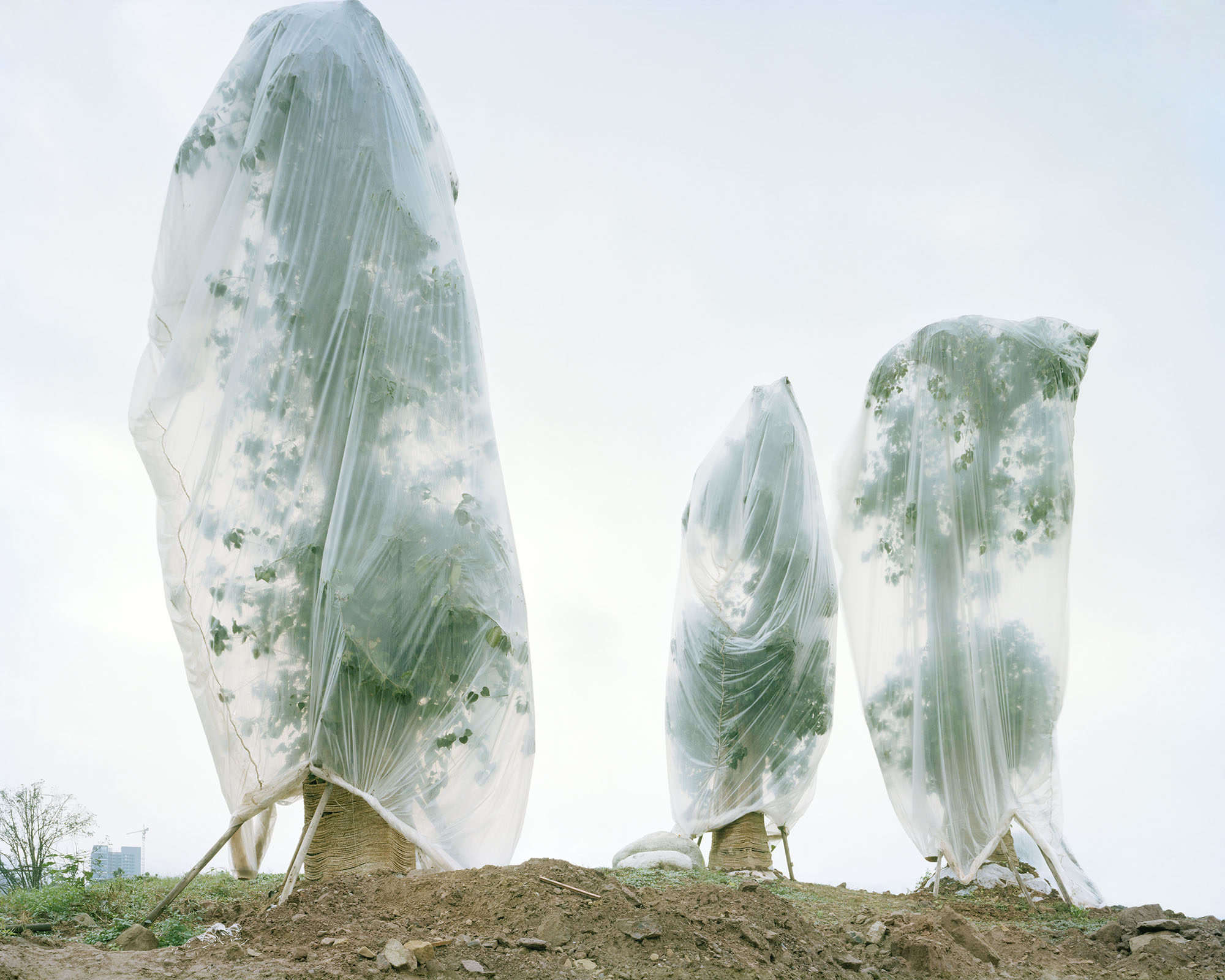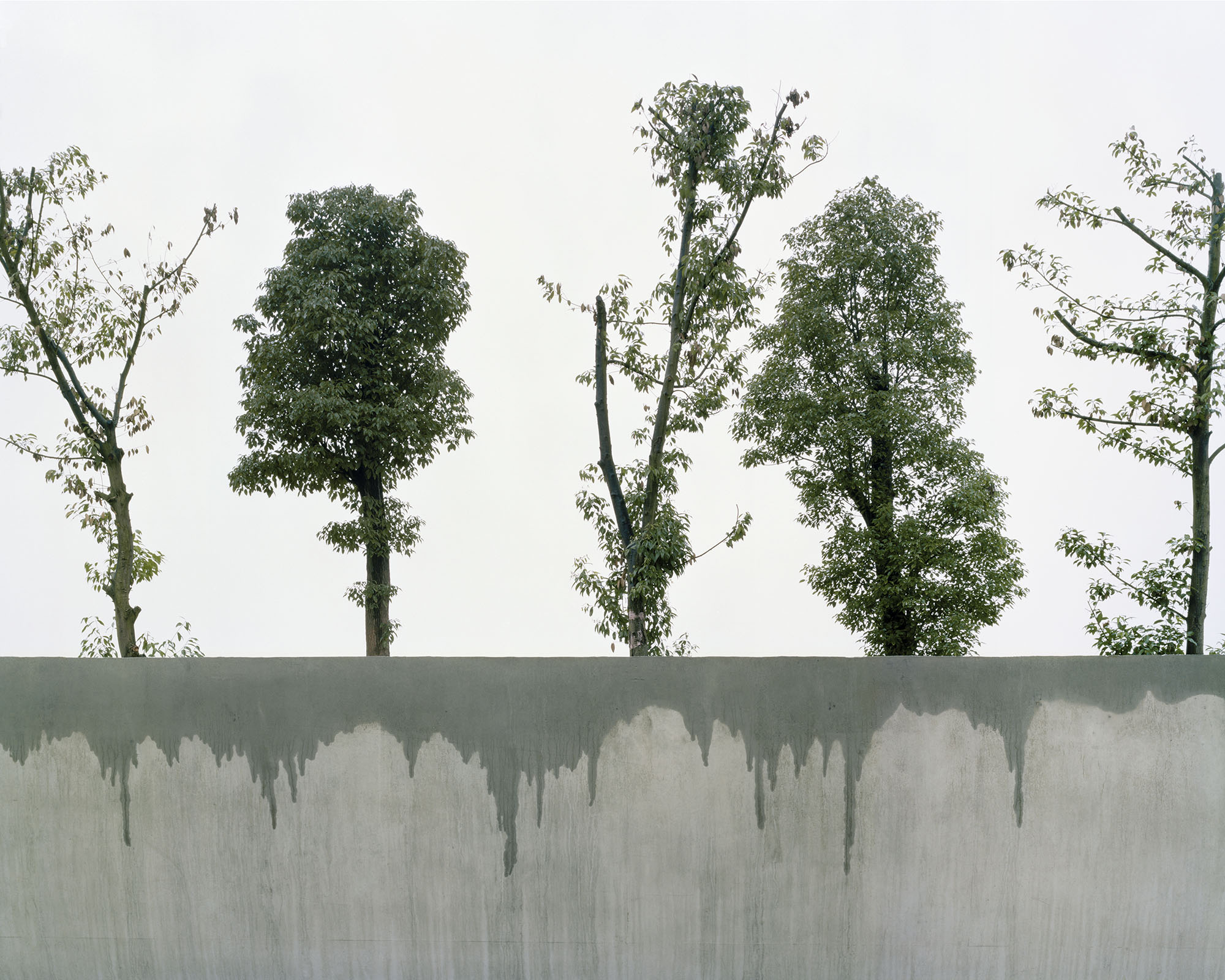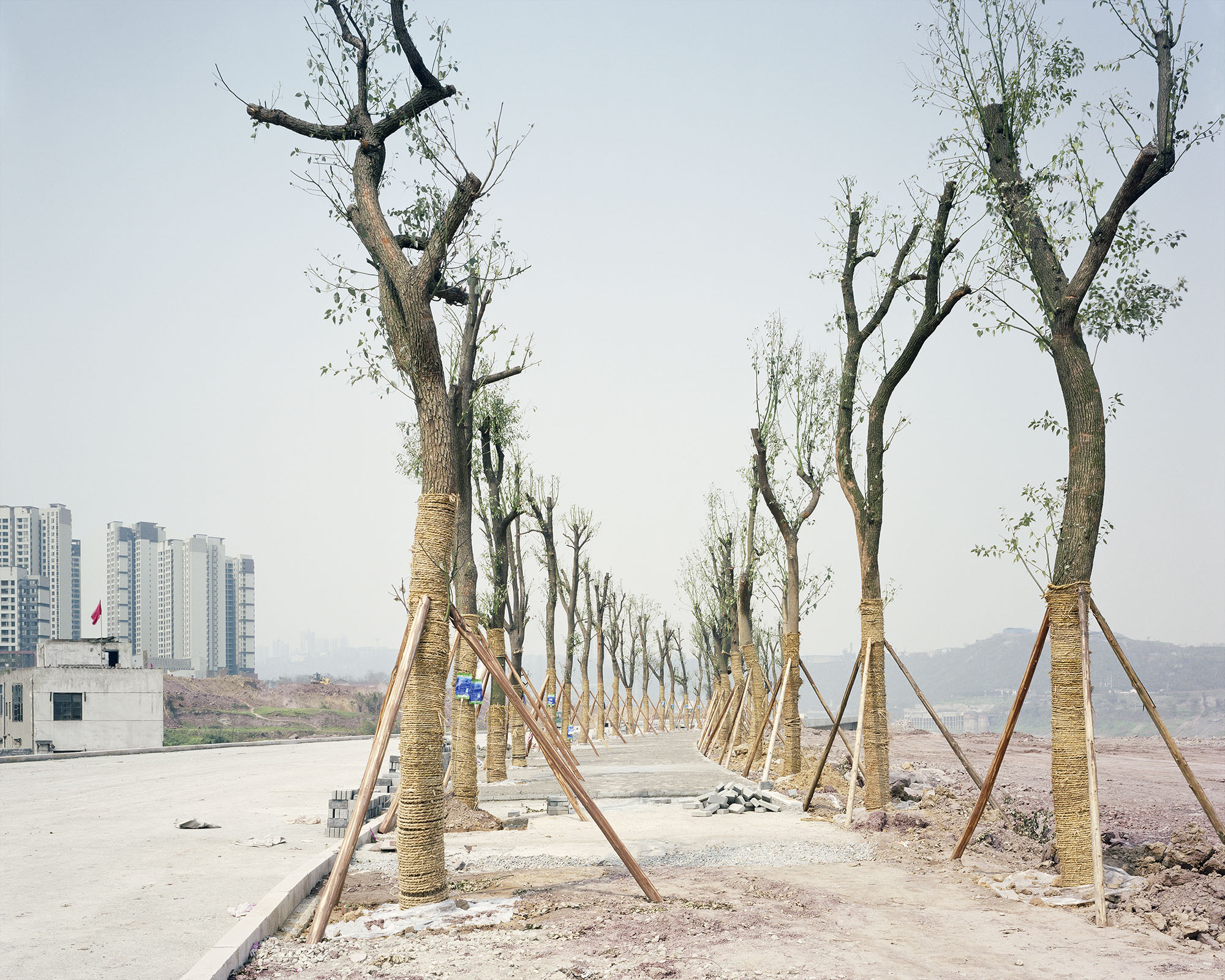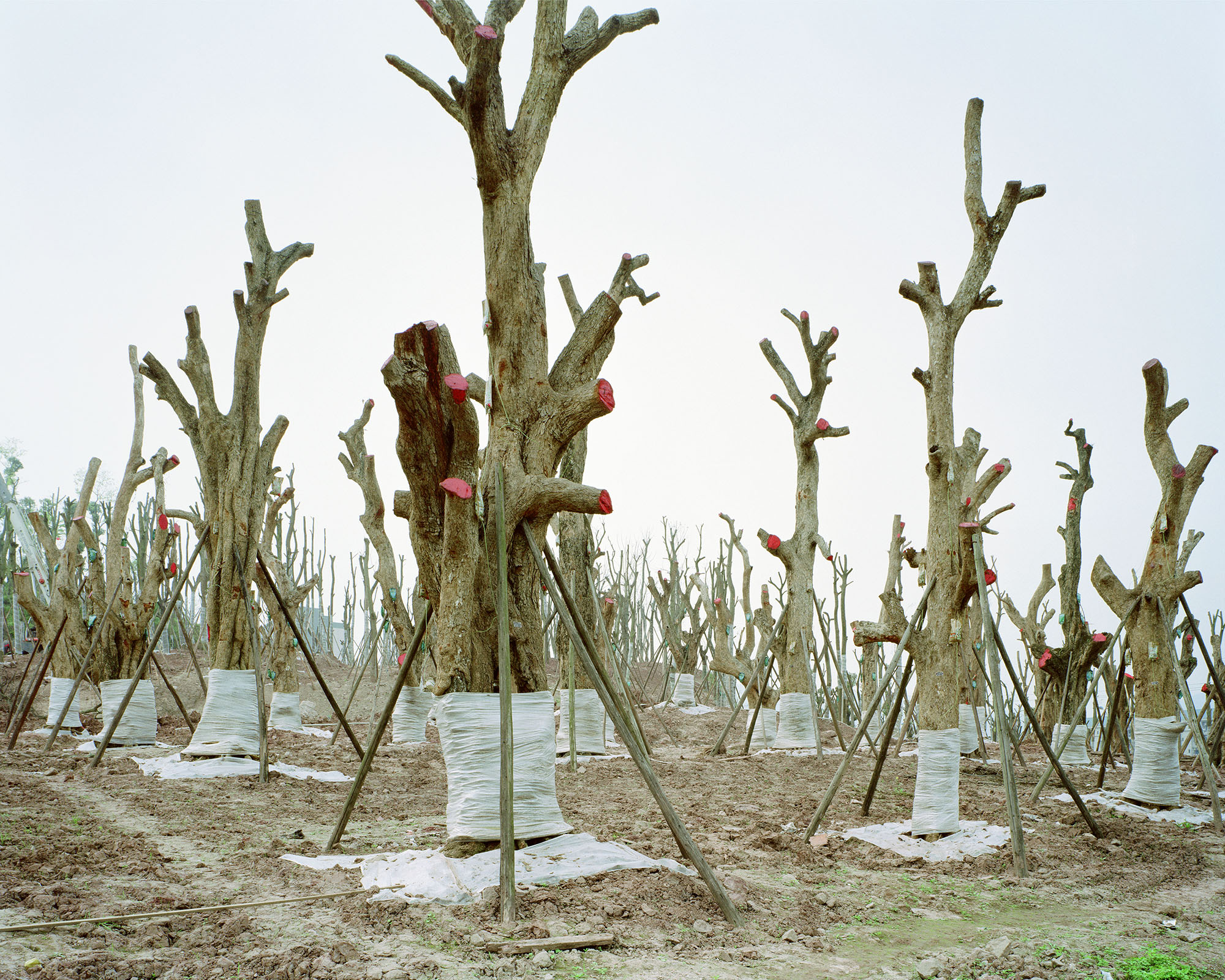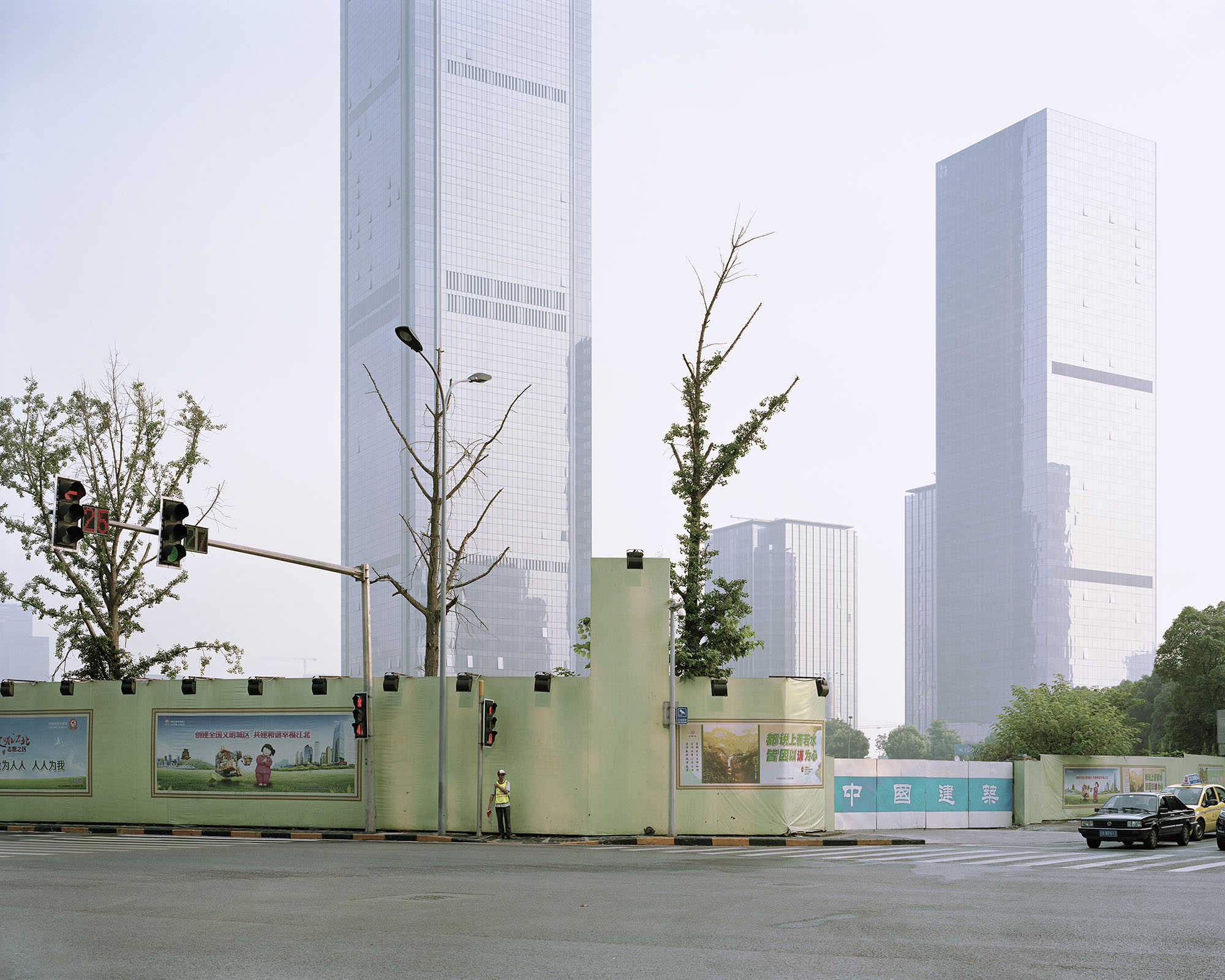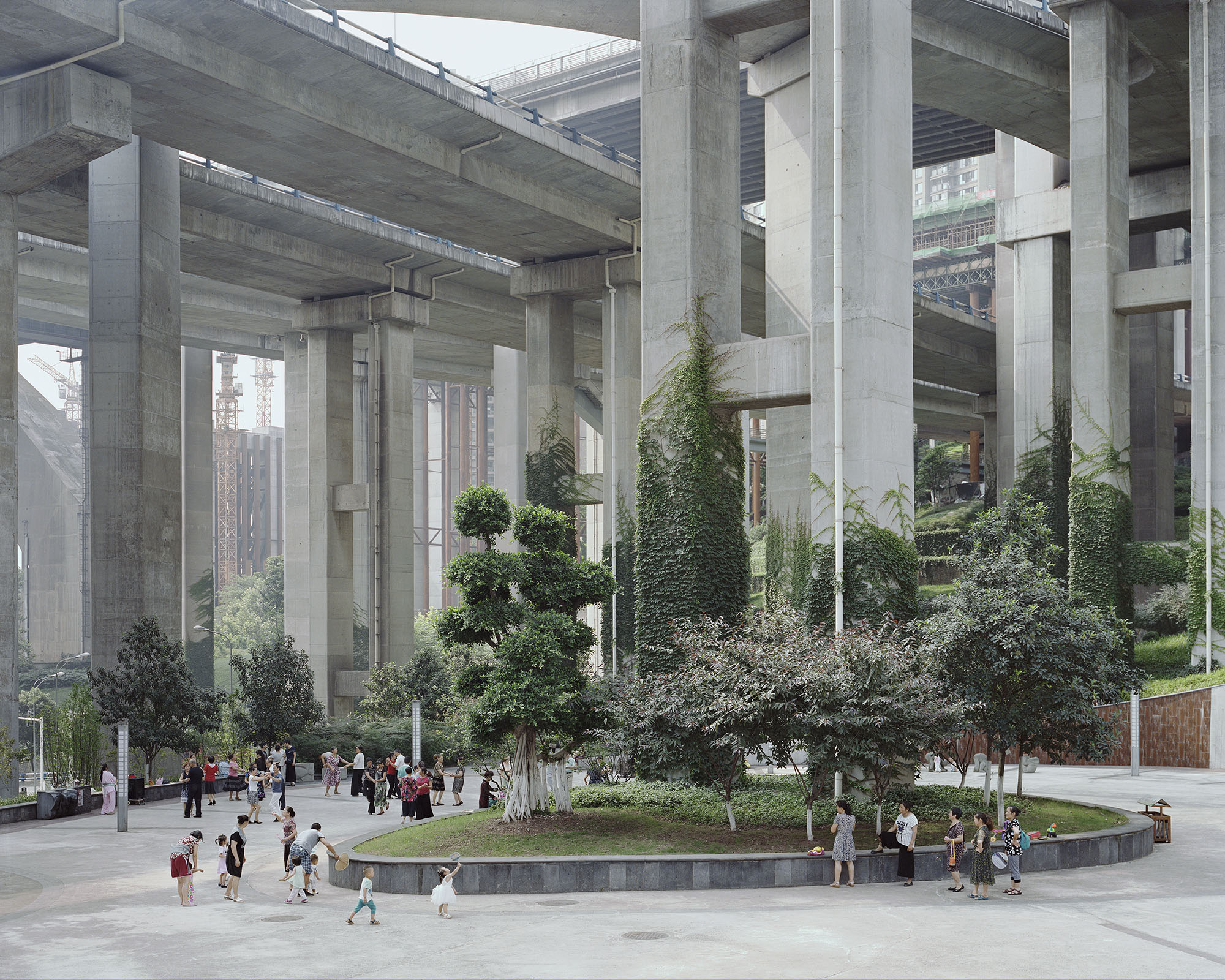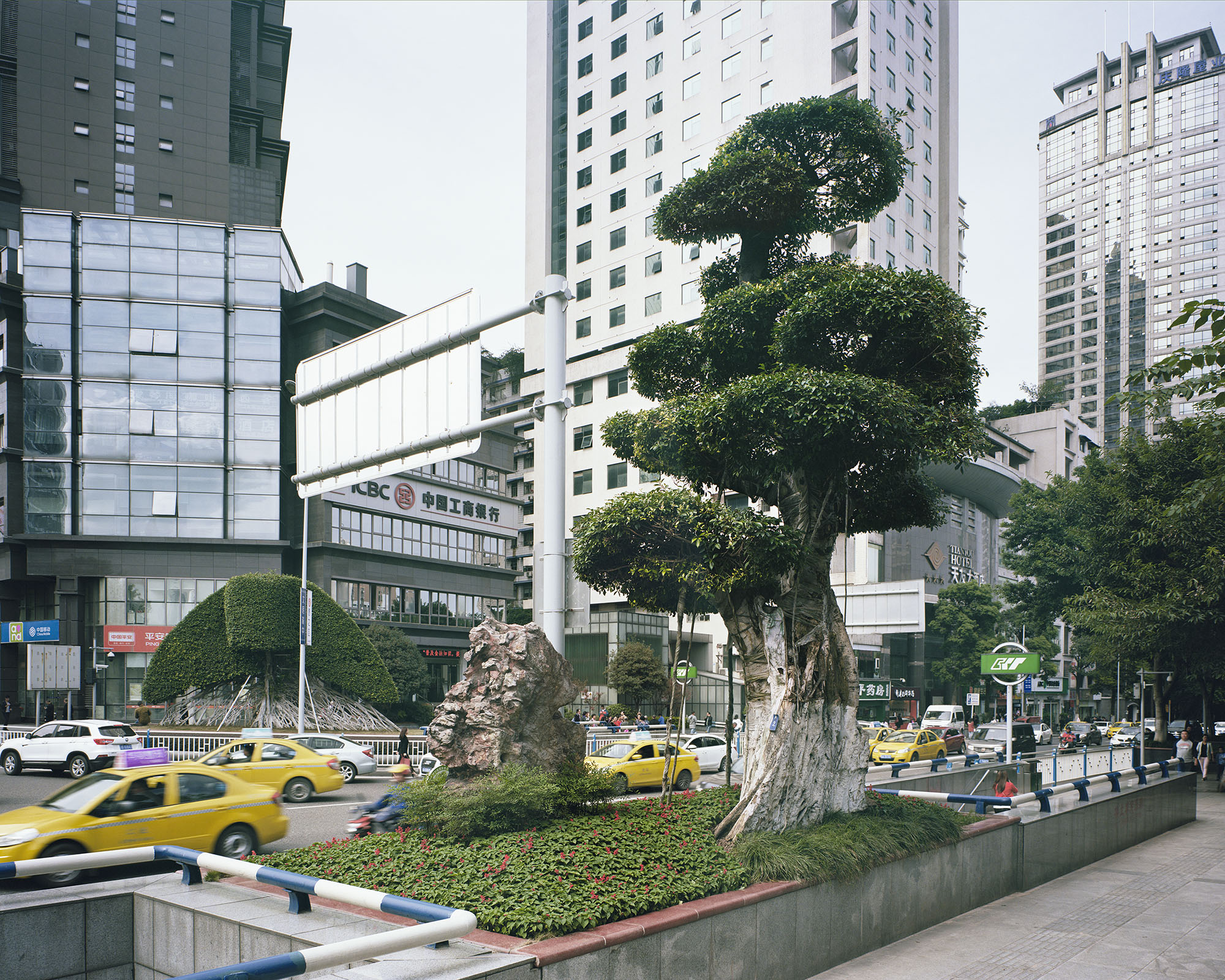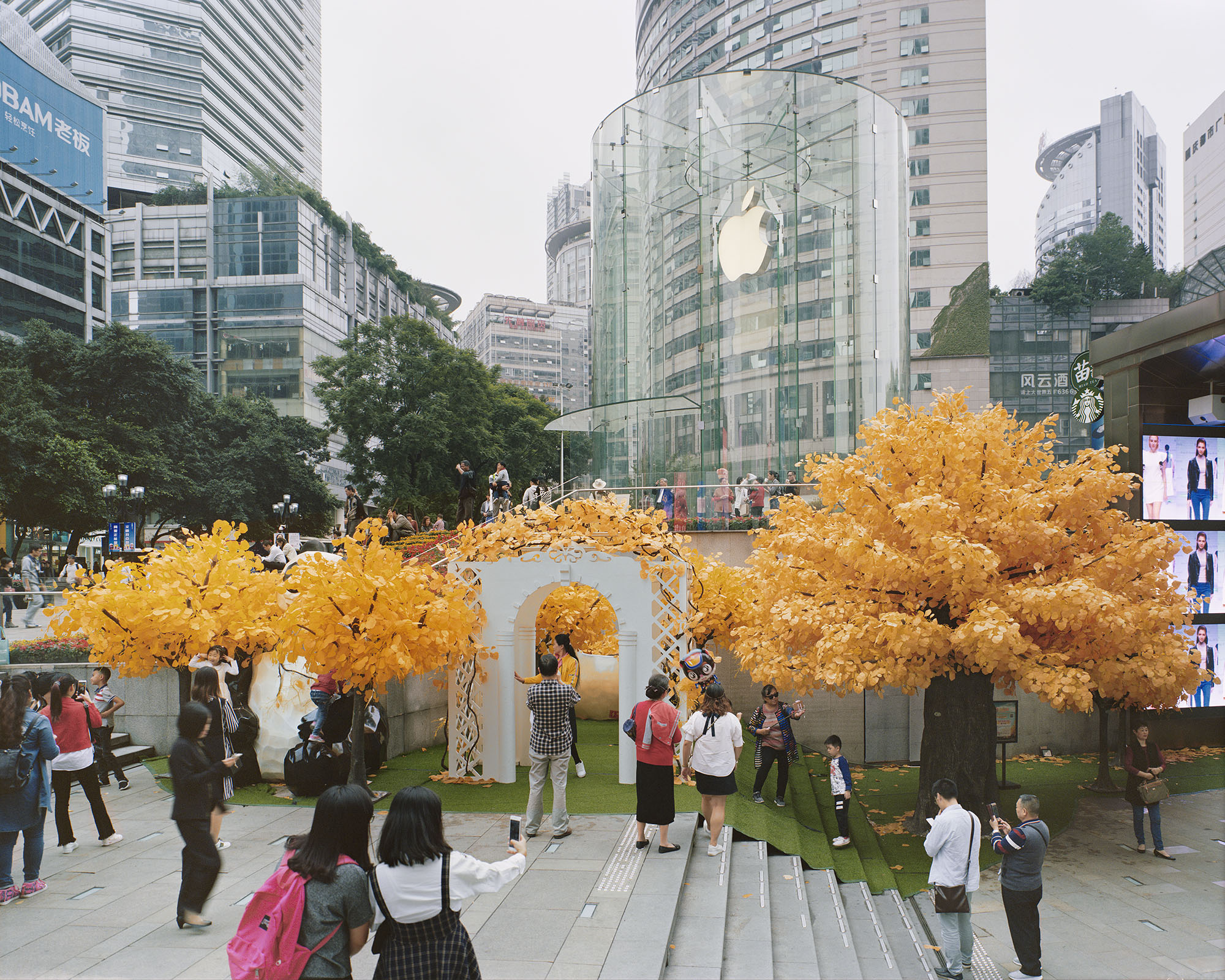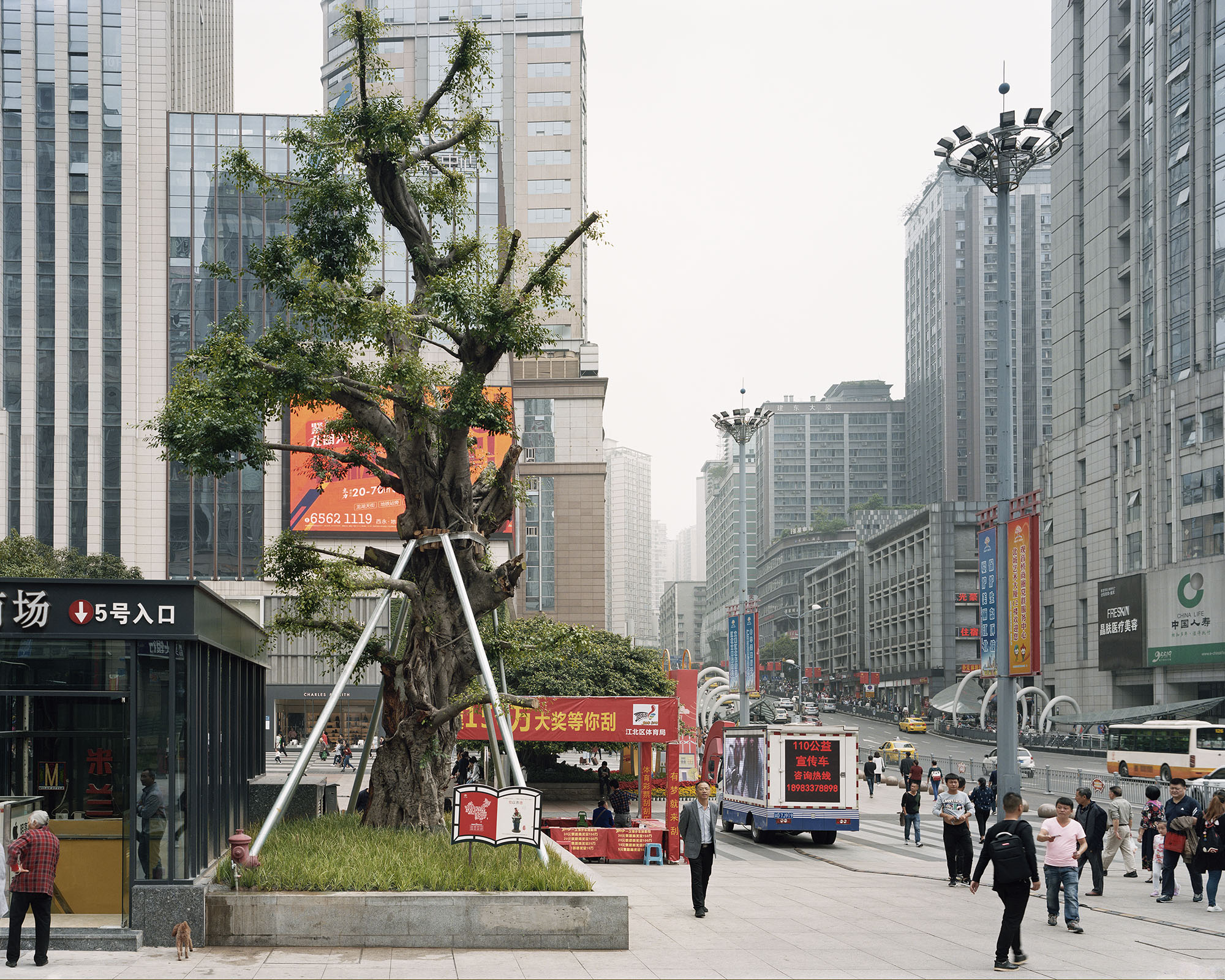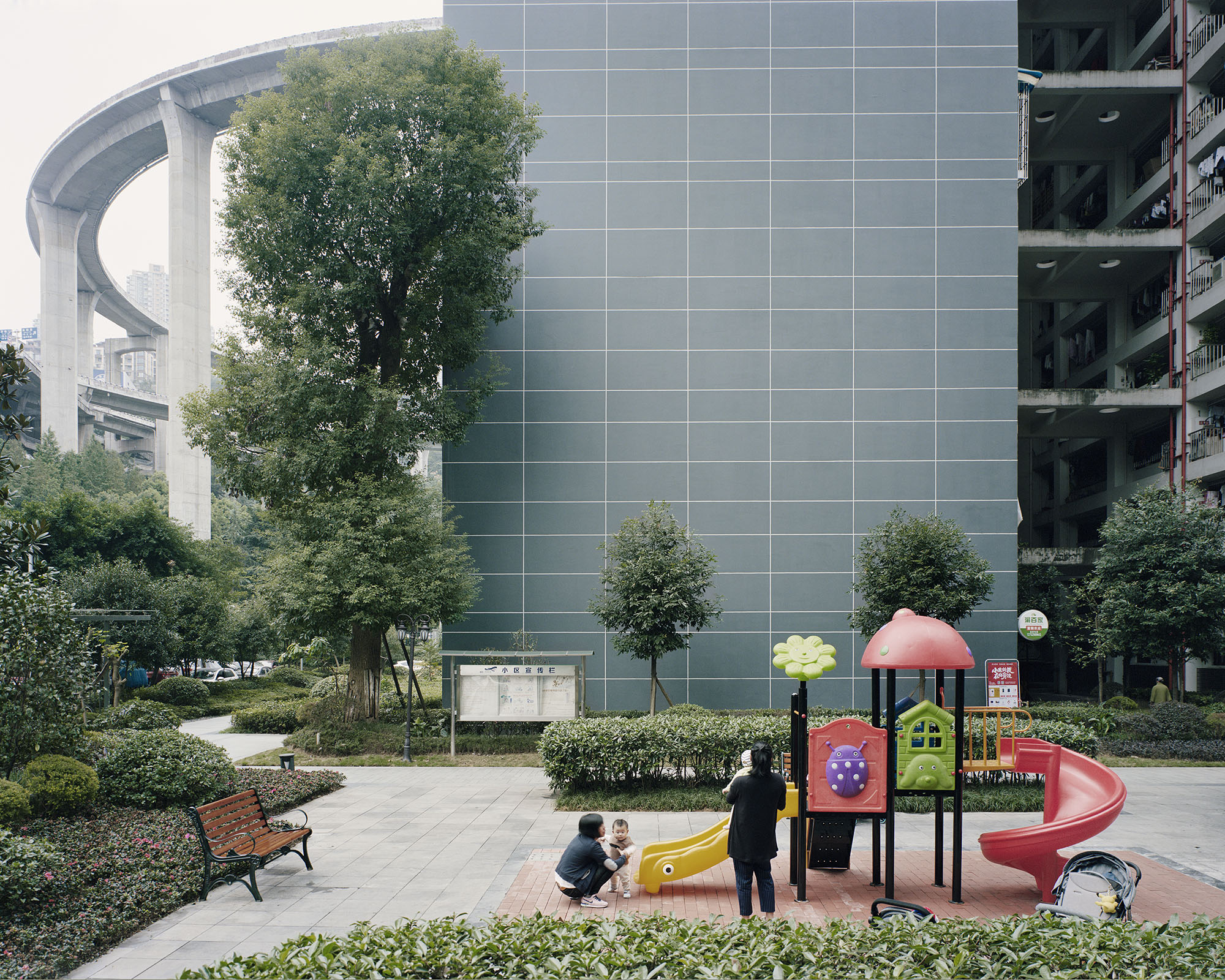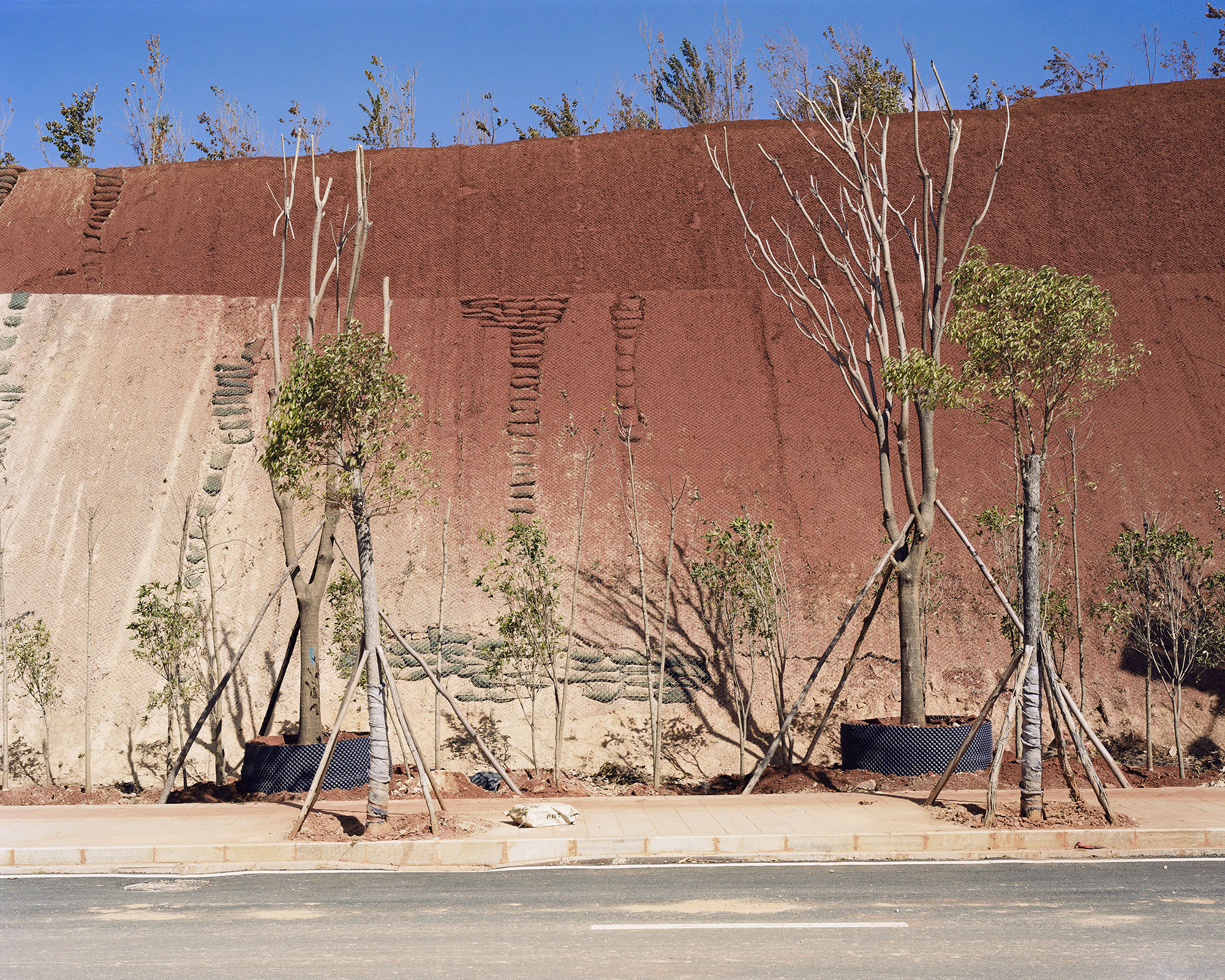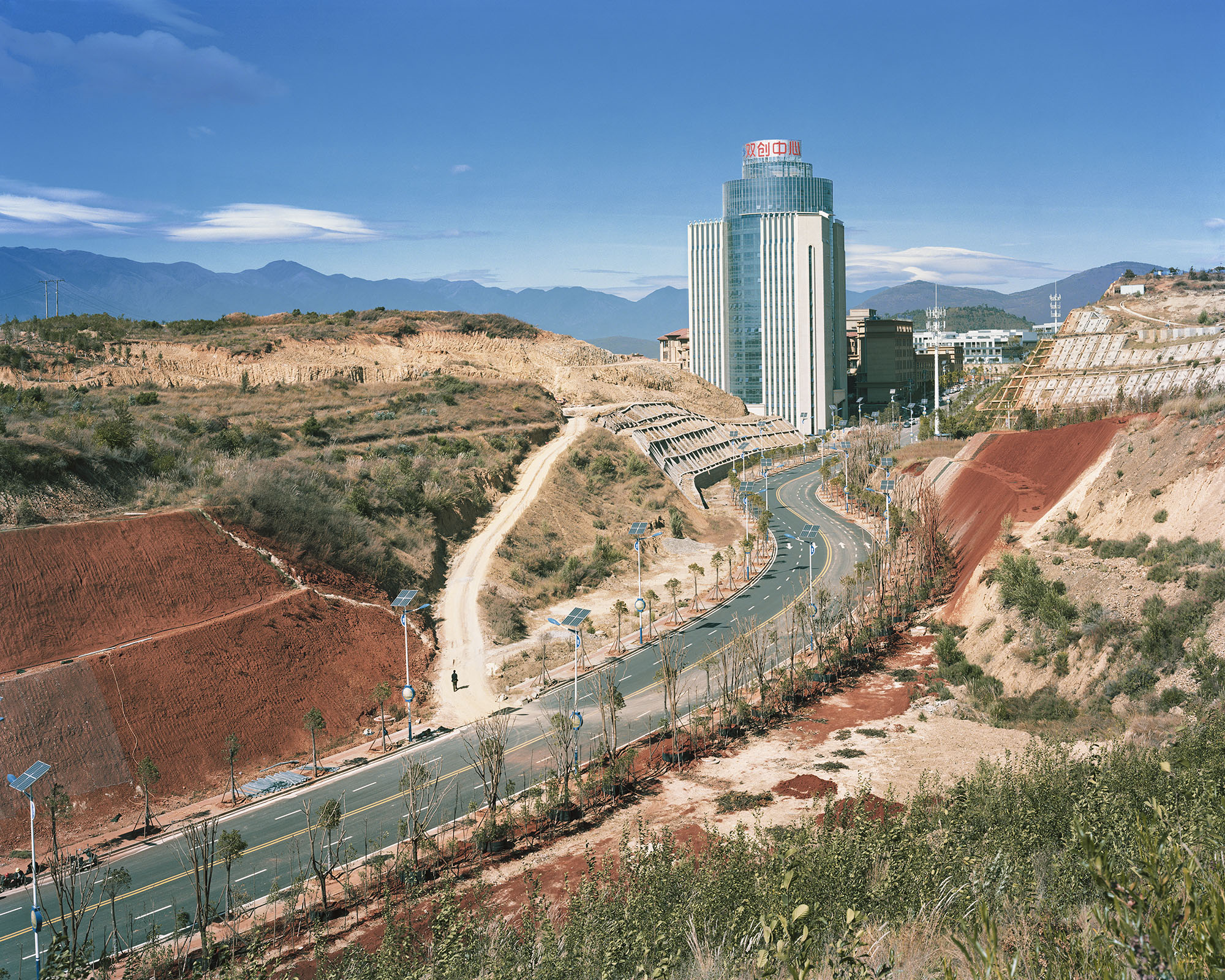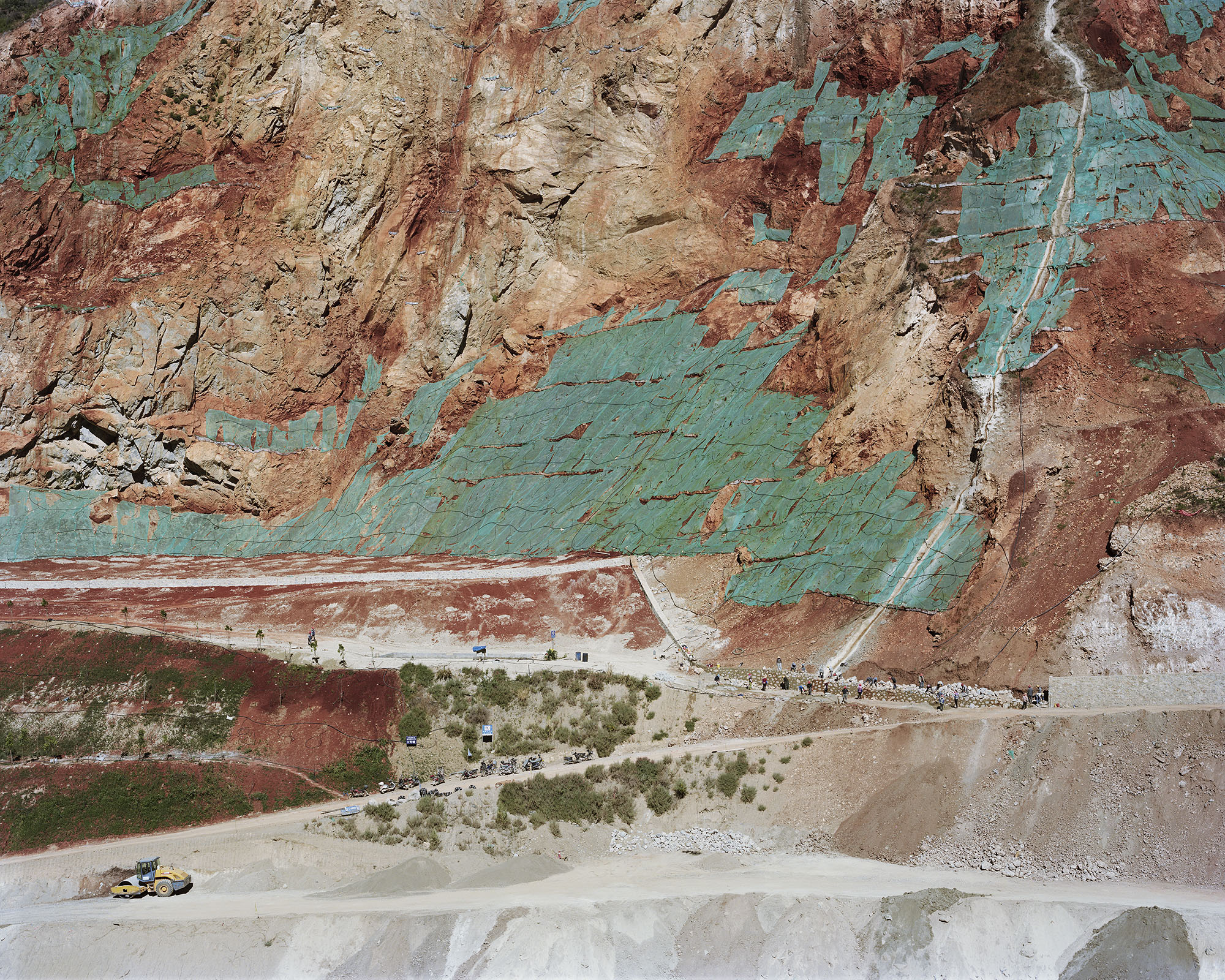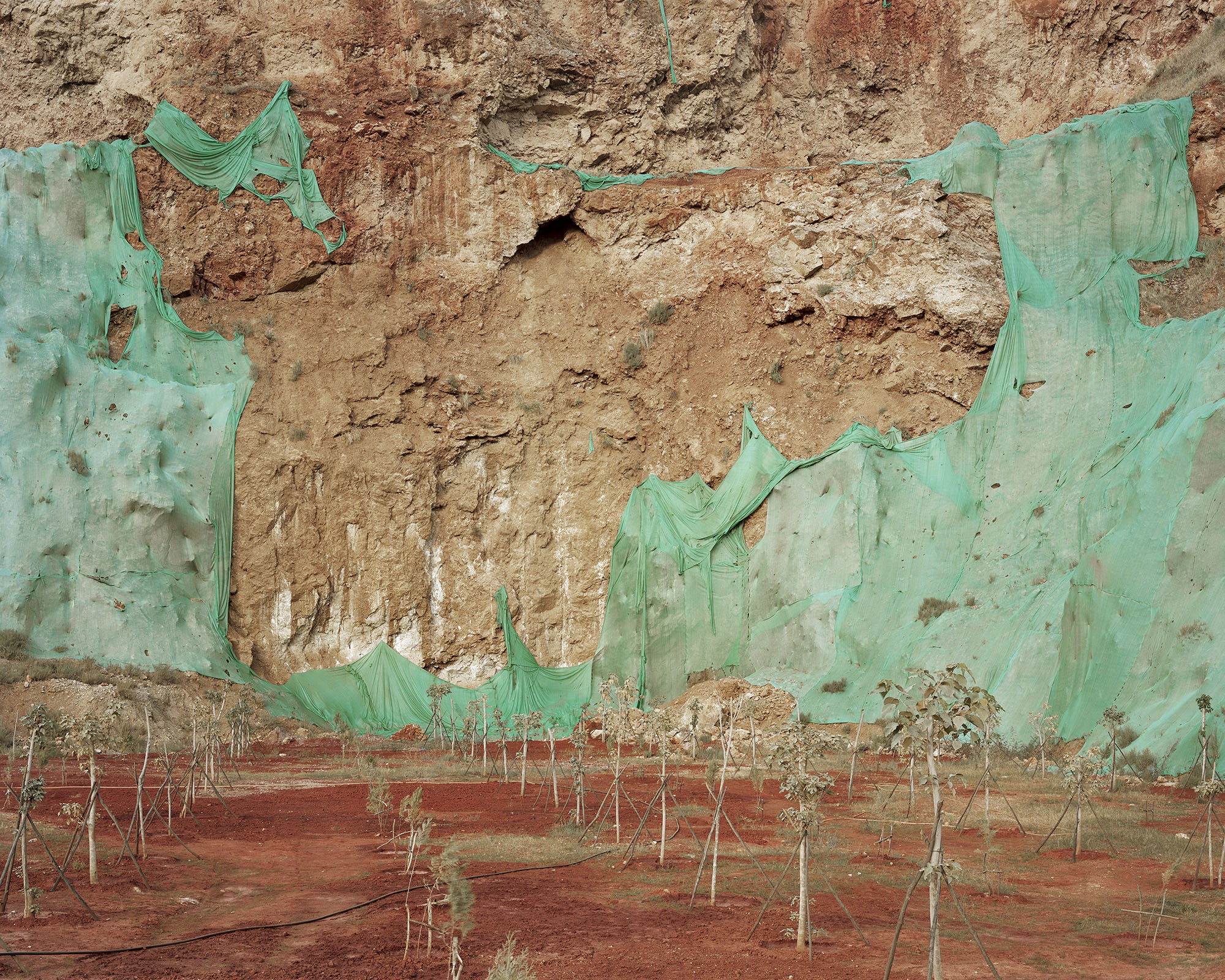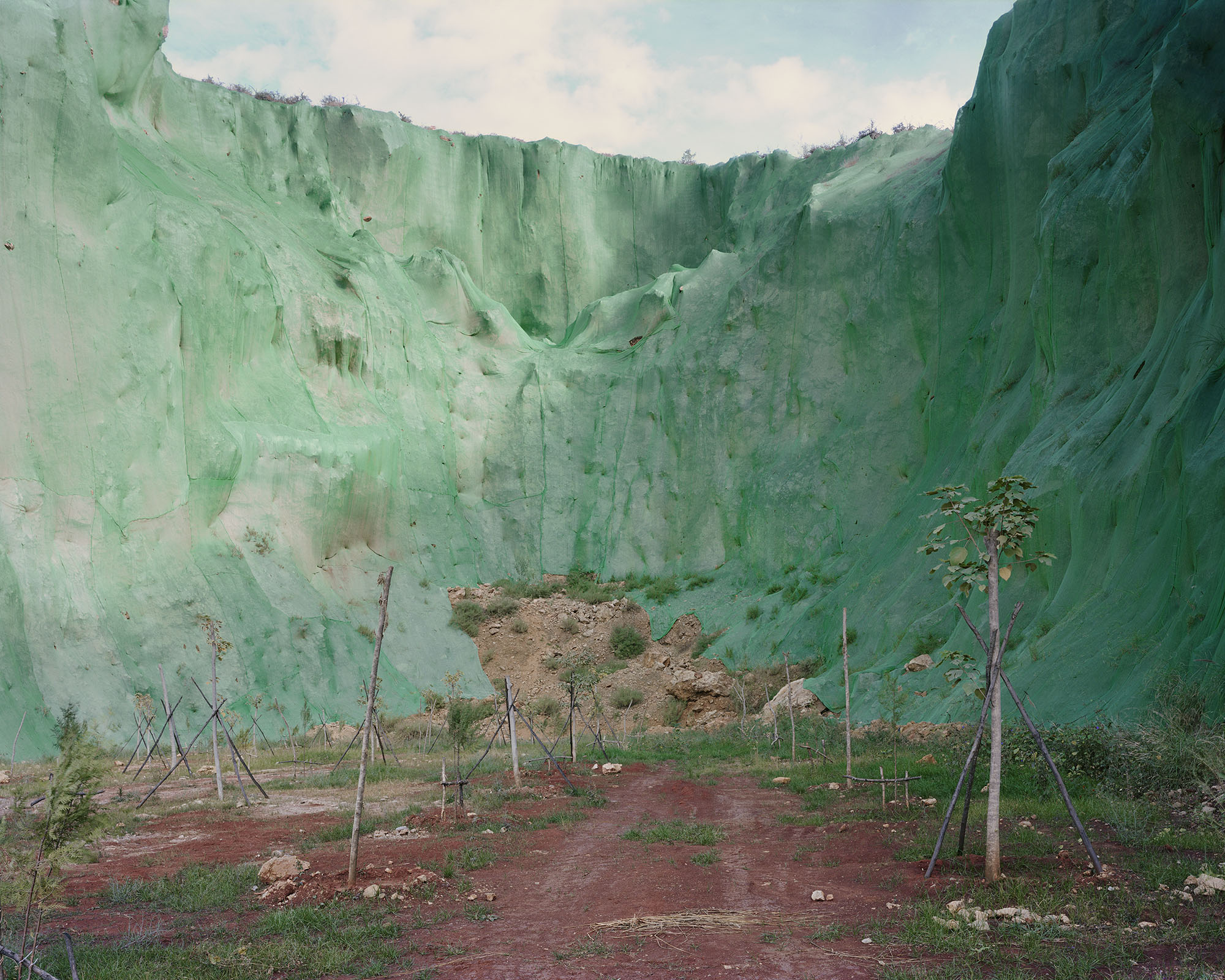“Forest” by Yan Wang Preston: Grafting Old Trees to Young Cities
The Word for World is Still Forest*. In the age of anthropocene, the violent destruction of forests is one of the defining characteristics of our societies. Interestingly, forests are also deeply desirable for rapidly expanding urban environments around the world.
In the photographic project Forest, I spent eight years (2010-2017) investigating the politics of recreating forests and the ‘natural’ environment in new Chinese cities. In Chongqing, China’s largest metropolis with thirty-million people, a policy of having a ‘Forest City’ is implemented. While saplings are a common choice, hundreds and thousands of mature trees are also purchased and transplanted into the city to make ‘readymade’ forests. Often the trees become trophies, decorations and a commodity to raise property prices with.
Their prices depend on their rarity, size and age. Their origins include demolished villages, newly deforested areas and beyond. Their futures are uncertain.
In Haidong Development Zone, Dali, Yunnan Province, a small rural area is being urbanised systematically to create ‘an international leisure town and an ecology model town’. In doing so, the top soil of the entire area is being replaced by a type of red semi-artificial soil, which forms the base for introduced, mostly non-indigenous plants, including thousands of mature trees. Meanwhile, green plastic netting is used to cover everything unappealing to the eye, from construction waste to disused quarries. The town’s objective here has shifted from an ‘ecological’ concern to a cosmetic one, of trying to be visually green. By 2017, seven years into its construction, Haidong is still a ‘ghost’ town with no permanent residents
I started this project in Chongqing, by following the developments of the transplanted old trees, the concrete city and its people for eight years, documenting the changes, dramas and lives in the city. I then extended the project to Haidong, capturing the bizarre and wildly-coloured ecology-recovery landscapes. On the way, a series of stories are collected and narrated, that raise questions about the complexity of urban reforestation and nature re-construction in the contemporary era.
Forest won the First Prize, Syngenta Photography Award in 2017 and has been published as a monograph by Hatje Cantz in 2018.
*This sentence is borrowed from the book title by Anna-Sophie Springer (Berlin: K.Verlag, 2017).
-
2019/07/19

-
Chongqing & Dali

-
Yan Wang Preston


the other map
Explore arrow
arrow
loading map - please wait...

